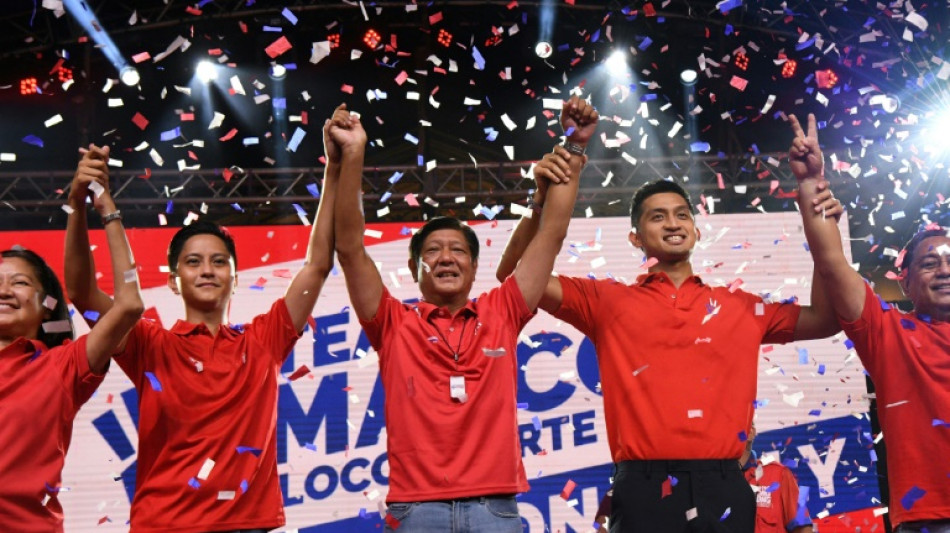
-
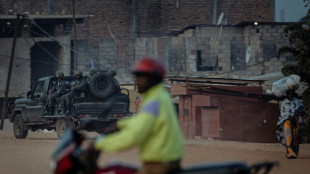 M23 militia says to pull out of key DR Congo city at US's request
M23 militia says to pull out of key DR Congo city at US's request
-
Thousands of glaciers to melt each year by mid-century: study
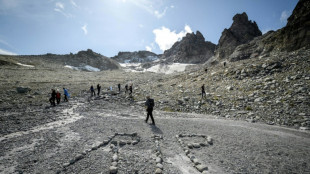
-
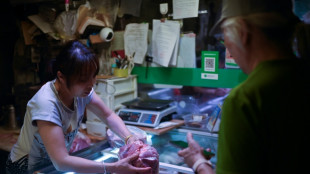 China to impose anti-dumping duties on EU pork for five years
China to impose anti-dumping duties on EU pork for five years
-
Nepal starts tiger census to track recovery

-
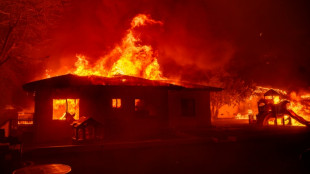 Economic losses from natural disasters down by a third in 2025: Swiss Re
Economic losses from natural disasters down by a third in 2025: Swiss Re
-
Indonesians reeling from flood devastation plea for global help
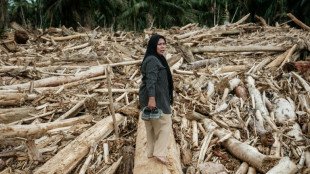
-
 Timeline: How the Bondi Beach mass shooting unfolded
Timeline: How the Bondi Beach mass shooting unfolded
-
On the campaign trail in a tug-of-war Myanmar town
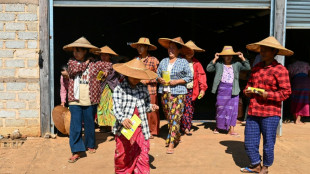
-
 Bondi Beach suspect visited Philippines on Indian passport
Bondi Beach suspect visited Philippines on Indian passport
-
Kenyan girls still afflicted by genital mutilation years after ban
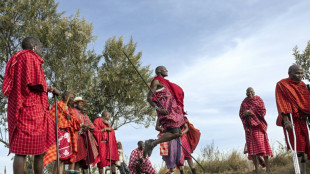
-
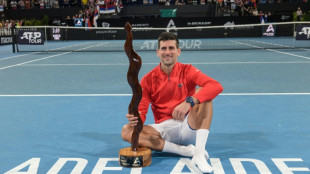 Djokovic to warm up for Australian Open in Adelaide
Djokovic to warm up for Australian Open in Adelaide
-
Man bailed for fire protest on track at Hong Kong's richest horse race

-
 Men's ATP tennis to apply extreme heat rule from 2026
Men's ATP tennis to apply extreme heat rule from 2026
-
10-year-old girl, Holocaust survivors among Bondi Beach dead
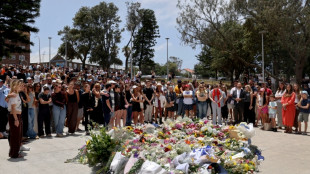
-
 Steelers edge towards NFL playoffs as Dolphins eliminated
Steelers edge towards NFL playoffs as Dolphins eliminated
-
Australian PM says 'Islamic State ideology' drove Bondi Beach gunmen
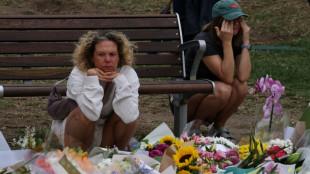
-
 Canada plow-maker can't clear path through Trump tariffs
Canada plow-maker can't clear path through Trump tariffs
-
Bank of Japan expected to hike rates to 30-year high

-
 Cunningham leads Pistons past Celtics
Cunningham leads Pistons past Celtics
-
Stokes tells England to 'show a bit of dog' in must-win Adelaide Test

-
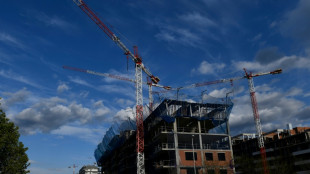 EU to unveil plan to tackle housing crisis
EU to unveil plan to tackle housing crisis
-
EU set to scrap 2035 combustion-engine ban in car industry boost
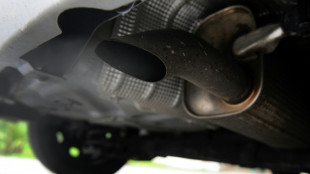
-
 Australian PM visits Bondi Beach hero in hospital
Australian PM visits Bondi Beach hero in hospital
-
'Easiest scam in the world': Musicians sound alarm over AI impersonators

-
 'Waiting to die': the dirty business of recycling in Vietnam
'Waiting to die': the dirty business of recycling in Vietnam
-
Asian markets retreat ahead of US jobs as tech worries weigh

-
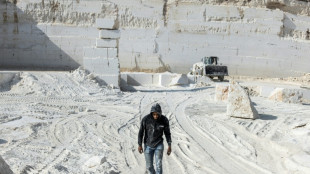 Famed Jerusalem stone still sells despite West Bank economic woes
Famed Jerusalem stone still sells despite West Bank economic woes
-
Trump sues BBC for $10 billion over documentary speech edit
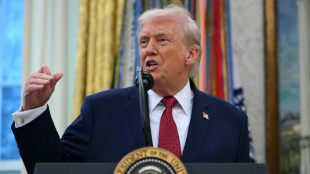
-
 Chile follows Latin American neighbors in lurching right
Chile follows Latin American neighbors in lurching right
-
Will OpenAI be the next tech giant or next Netscape?

-
 Khawaja left out as Australia's Cummins, Lyon back for 3rd Ashes Test
Khawaja left out as Australia's Cummins, Lyon back for 3rd Ashes Test
-
Australia PM says 'Islamic State ideology' drove Bondi Beach shooters
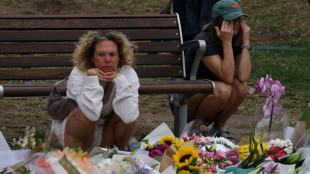
-
 Scheffler wins fourth straight PGA Tour Player of the Year
Scheffler wins fourth straight PGA Tour Player of the Year
-
New APAC Partnership with Matter Brings Market Logic Software's Always-On Insights Solutions to Local Brand and Experience Leaders

-
 Security beefed up for Ashes Test after Bondi shooting
Security beefed up for Ashes Test after Bondi shooting
-
Wembanyama blocking Knicks path in NBA Cup final

-
 Amorim seeks clinical Man Utd after 'crazy' Bournemouth clash
Amorim seeks clinical Man Utd after 'crazy' Bournemouth clash
-
Man Utd blow lead three times in 4-4 Bournemouth thriller

-
 Stokes calls on England to 'show a bit of dog' in must-win Adelaide Test
Stokes calls on England to 'show a bit of dog' in must-win Adelaide Test
-
Trump 'considering' push to reclassify marijuana as less dangerous

-
 Chiefs coach Reid backing Mahomes recovery after knee injury
Chiefs coach Reid backing Mahomes recovery after knee injury
-
Trump says Ukraine deal close, Europe proposes peace force

-
 French minister urges angry farmers to trust cow culls, vaccines
French minister urges angry farmers to trust cow culls, vaccines
-
Angelina Jolie reveals mastectomy scars in Time France magazine

-
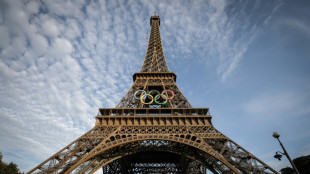 Paris Olympics, Paralympics 'net cost' drops to 2.8bn euros: think tank
Paris Olympics, Paralympics 'net cost' drops to 2.8bn euros: think tank
-
Chile president-elect dials down right-wing rhetoric, vows unity

-
 Five Rob Reiner films that rocked, romanced and riveted
Five Rob Reiner films that rocked, romanced and riveted
-
Rob Reiner: Hollywood giant and political activist

-
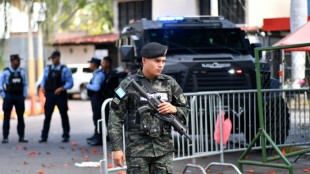 Observers say Honduran election fair, but urge faster count
Observers say Honduran election fair, but urge faster count
-
Europe proposes Ukraine peace force as Zelensky hails 'real progress' with US


All in the family: Philippine dynasties tighten grip on power
If the son of former Philippine dictator Ferdinand Marcos wins the May 9 presidential election, he will not be the only Marcos currently in power -- and will almost certainly not be the last.
Elite families have long ruled the poverty-ravaged nation, holding on to positions of power for generations by dishing out favours, buying votes or resorting to violence.
Analysts say the system has become more pervasive in the decades since a popular uprising deposed Marcos and forced the family into exile.
New dynasties have entrenched themselves in politics, smothering electoral competition, stunting economic development and worsening inequality.
"Power begets power -- the more they stay in power, the more they accumulate power, the more powerful they get," said Julio Teehankee, a professor at De La Salle University in Manila.
The archipelago has produced about 319 dynastic families, dating back to when the country was a US colony in the first half of the 20th century, Teehankee said.
Dozens have withered, but in 2019, members of at least 234 such families won positions in mid-term elections, he said.
They have flourished in a feudal and corrupt democracy where parties are weak, fragmented along clan lines and plagued by defections.
Power, however, is not static. Families can win and lose it -- and make a comeback.
After the fallen dictator died in 1989, the Marcoses returned to their traditional stronghold of Ilocos Norte and began tapping local loyalties to get elected to a succession of higher positions.
Ferdinand Marcos Jr, 64, is now on the verge of clinching the ultimate dynastic victory: the presidency.
The family also wants to make a clean sweep of the top posts in its northern bastion.
Launching their campaigns in the provincial capital Laoag, Marcos candidates stood together in front of a "Team Marcos" sign as thousands of supporters cheered.
Marcos Jr's eldest son is a first-time candidate, seeking one of two congressional seats in the windswept province of corn and tobacco farms. A cousin is defending the other.
His nephew -- the son of his sister Imee, a senator -- is vying for re-election as governor, while a cousin's widow is the incumbent vice-governor.
Marcos Jr told AFP the family was not a dynasty, but his cousin Michael Marcos Keon, seeking a second term as Laoag mayor, disagreed.
"This is all dynastic," said Keon, 67, who also served as governor after Marcos Jr hit the three-term limit -- a tactic often used to keep positions in the family.
"I wouldn't be where I am today if I weren't a Marcos."
- 'Family is paramount' -
The Marcoses' stranglehold on power in Ilocos Norte was "typical" of provinces across the country, said Ronald Mendoza, dean of Manila's Ateneo School of Government.
And their influence is growing.
Eighty percent of governors belong to "fat dynasties" -- clans with two or more members in power at the same time -- compared with 57 percent in 2004, Mendoza said.
Political families held 67 percent of seats in the House of Representatives, compared with 48 percent in 2004, and 53 percent of mayoral posts, up from 40 percent.
Among the leading candidates for the 12 Senate seats being contested, at least three already have a relative in the chamber.
Even the party-list system, which seeks to give citizens from marginalised groups representation in Congress, has been largely taken over by a handful of surnames.
As his daughter leads the race for the country's second-highest office, outgoing President Rodrigo Duterte said recently he had "accomplished" his job.
"I have a daughter running for vice-president, a son for congressman and one other as mayor. I am fulfilled," he said.
More than 18,000 posts are being contested in next month's elections. At least 800 have only one candidate.
Mendoza said the pandemic had made it even more likely that incumbents would win.
"You have more voters potentially vulnerable to vote-buying, more voters concerned about their continued access to social protection," he said.
Mendoza said poverty tended to rise as dynasties fattened, especially in provinces beyond the main island of Luzon, where "checks and balances" on governance are weaker.
While political dynasties exist in other countries, analysts said their prevalence in the Philippines was among the highest in the world.
Preparing the next generation for politics was essential to a clan's survival, said analyst Mark Thompson, likening dynasties to football clubs.
"If you're the Barcelona or PSG... of Philippine politics, why not get the next generation trained up as well," said Thompson, director of the Southeast Asia Research Centre at the City University of Hong Kong.
Efforts to reduce such families' influence have come to nothing, despite the country's 1987 constitution mandating that Congress ban them.
"You cannot expect a house full of dynasties to pass an anti-dynasty legislation -- it's like asking Dracula to guard the blood bank," said Teehankee.
Keon admitted the system was not democratic, and unlikely to change.
"This is how politics is here," Keon said in his office, surrounded by photos of the Marcos clan, including the patriarch.
"Family is paramount."
A.Aguiar--PC
